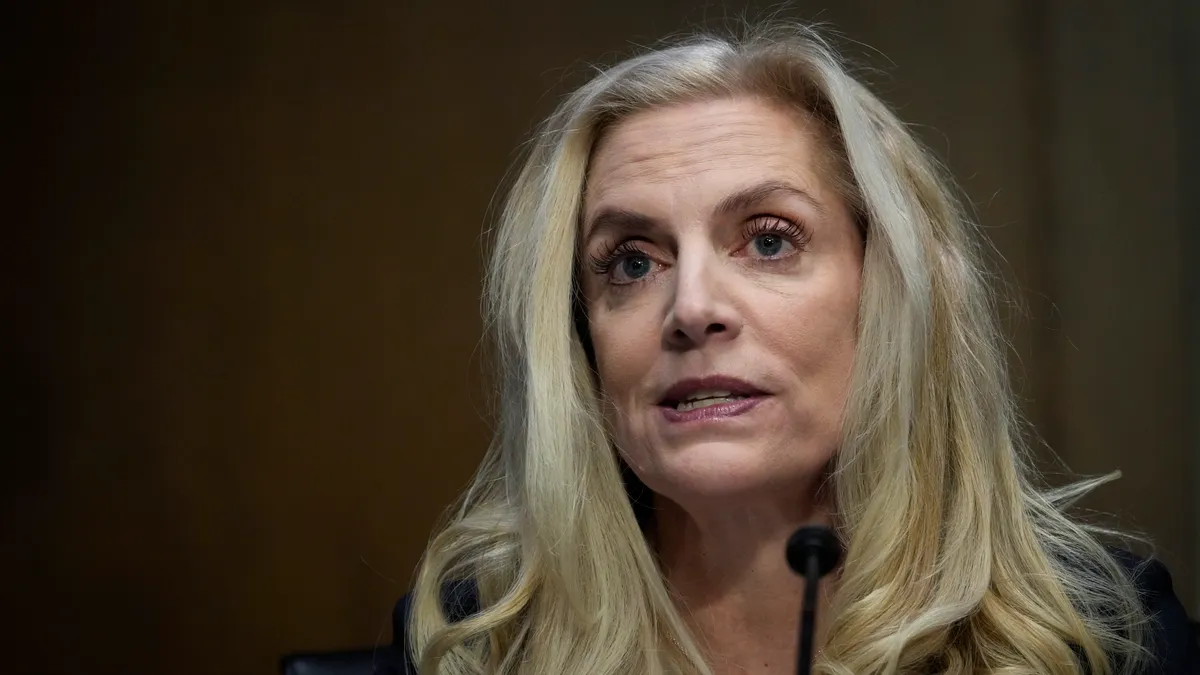Executives have a critical role to play in decisions that affect our economy, Lael Brainard, director of the National Economic Council and former vice chair of the Federal Reserve, told an audience at the Economic Club of New York on Wednesday.
Brainard highlighted two key areas where their moves are consequential: learning from banking failures and curtailing inflation. Speaking about the recent banking crisis, she stressed the importance of holding leaders accountable for decisions taken in the lead-up to events.
“It was very important for managers and the owners of those institutions to face the consequences of having very poorly managed their risks, and in particular, not anticipating well the risks of a rising rate environment which was clear for everyone to see,” she said. “It's important for senior executives at institutions to be carefully monitoring all manner of risks and to continue strengthening balance sheets and managing liquidity.”
On inflation, Brainard said private sector participants can take action to curb inflation, especially when high prices for consumer goods persist.
“It will be important for corporations to continue to bring their markups back down after having raised them to unusually elevated levels over the past two years, which could help in reducing inflation,” she said. The markups associated with price-price spirals, in which prices go up by more than input prices, should wind down if customers become more price-sensitive and companies compete more intensely for customers, she added.
Asked about the cause of inflation, which some have attributed to the American Rescue Plan, Brainard said it’s difficult to pinpoint any one driver. A supply and demand mismatch, she noted, likely contributed to the course of events.
There were “extreme mismatches between demand — which itself was very skewed by the pandemic and the supply side of the economy, which was not resilient in the face of first several waves of a global pandemic — that was very protracted and then followed in short order by massive spikes in energy and food prices associated with a war,” she said. “These are extremely unusual events.”
The pandemic and the war in Ukraine, she said, highlighted supply chain fragilities that contributed to critical product shortages and surging inflation. She noted constraints on shipping and on the supply of semiconductors, pressures that necessitated investments in the supply side of the economy.
The administration is also working to continue to engage China, and concurrently undertaking efforts to diversify supply chains to reduce dependence on a single source, she said.
Brainard challenged recessionary predictions, owing to progress on inflation, unemployment and labor force participation, taking the view that the U.S. economy is making a recovery.
“We've seen these repeated predictions that recession is right around the corner,” she said, emphasizing that the U.S. recovery is solid, and inflation is down. “In the weeks and months ahead, we will continue working diligently to support growth that benefits the middle class through smart public investments, educating and empowering workers, and lowering the cost of living,” she said.
Brainard attributed this progress to Biden administration policies. The Bureau of Labor Statistics reported Wednesday that the consumer price index rose 3% year-over-year in June, the smallest increase since March 2021. Meanwhile, unemployment fluctuated “in a narrow band below 4% for 17 months” and wages were higher than they were during the pandemic, Brainard added.












